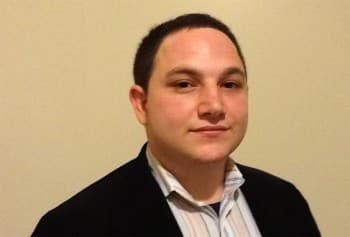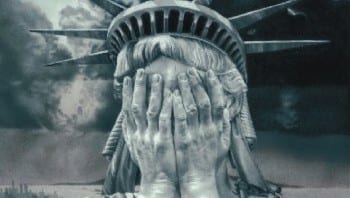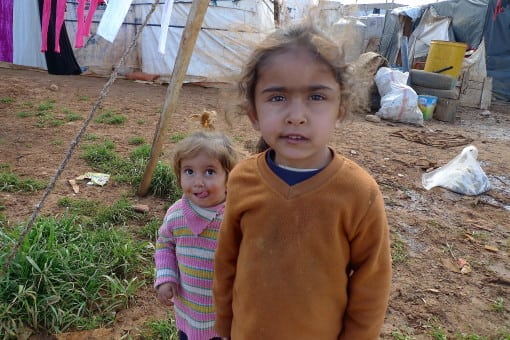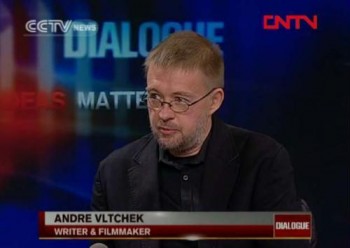Refugees as Weapons in a Propaganda War
![]()
//
In the wake of the horrific terror attacks in Paris, world attention will once again be focused on the issue of refugees entering Europe. While much of the spotlight has been rightly pointed at Syrian refugees fleeing the western-sponsored war against the Syrian government, it must be remembered that the refugees come from a variety of countries, each of which has its own particular circumstances, with many of them having been victims of US-NATO aggression in one form or another. Syria, Afghanistan and Libya have of course been targeted by so-called ‘humanitarian wars’ and fake ‘revolutions’ which have left the countries fractured, divided, and unable to function; these countries have been transformed into failed states thanks to US-NATO policy.
What often gets lost in the discussion of refugees however is the fact that a significant proportion of those seeking sanctuary in Europe and the US are from the Horn of Africa: Sudan, Somalia, Ethiopia, and Eritrea primarily. While there is some discussion of this issue in western media, it is mostly ignored when it comes to the first three countries as news of fleeing Sudanese, Somalis, and Ethiopians does not bode well for Washington’s narrative as the US has, in one way or another, been directly involved in each of those countries.
However, in the case of Eritrea, a fiercely independent nation that refuses to bow to the diktats of the US, the country is presented as a seemingly bottomless wellspring of refugees fleeing the country. Were one to read solely the UN reports and news stories, one could be forgiven for thinking that Eritrea has been mostly depopulated as hordes of Eritrean youth flee the country in droves. But that narrative, one which is periodically reinforced by distorted coverage in the media, is quickly being eroded as increasingly the truth is coming out.
Countering the Eritrean Refugee Propaganda
[dropcap]T[/dropcap]he popular understanding of Eritrea in the West (to the extent that people know of the country at all) is of a nation, formerly ruled by Ethiopia, which has become the “North Korea of Africa,” a systematic violator of human rights ruled by a brutal dictatorship that uses slave labor and tortures its citizens. As such, Eritrea is immediately convicted in the court of public opinion and, therefore, becomes a convenient scapegoat when it comes to migration. In fact, it seems that the propaganda against Eritrea has been so effective, with the US and Europe so keen to take in anyone fleeing the country, that it has become the stated country of origin for thousands upon thousands of refugees from a number of countries. It seems that African refugees, regardless of their true country of origin, are all Eritreans now.
Take for instance the comments by the Austrian ambassador to Ethiopia who unabashedly explained that, “We believe that 30 to 40 percent of the Eritreans in Europe are Ethiopians.” Depending on who you ask, the numbers may actually be even higher than that. Indeed, being granted asylum in Europe is no easy feat for African refugees who, knowing the political agenda of Europe and its attempts to isolate and destabilize Eritrea through promoting the migration of its citizens, quickly lose their passports and claim to be Eritreans fleeing political persecution.
But who can blame these people when the US itself has established specific policies and programs aimed at luring Eritrean youths away from their country? As WikiLeaks revealed in a 2009 diplomatic cable from the US Embassy entitled “Promoting Educational Opportunity for Anti-Regime Eritrean Youth,” the former US ambassador to Eritrea Ronald K. McMullen noted that the US:
…intends to begin adjudicating student visa applications, regardless of whether the regime is willing to issue the applicant an Eritrean passport and exit visa …With an Eritrean passport and an F1 visa in a Form DS-232, the lucky young person is off to America. For those visa recipients who manage to leave the country and receive UNHCR refugee status, a UN-authorized travel document might allow the young person to travel to America with his or her F1 in the DS-232.…Due to the Isaias regime´s ongoing restrictions on Embassy Asmara, [the US] does not contemplate a resumption of full visa services in the near future. However, giving young Eritreans hope, the chance for an education, and the skills with which to rebuild their impoverished country in the post-Isaias period is one of the strongest signals we can send to the Eritrean people that the United States has not abandoned them…
Using the twin enticements of educational scholarships and escape from mandatory national service, the US and its European allies have attempted to lure thousands of Eritreans to the West in the hopes of destabilizing the Asmara government. As the Ambassador noted, the US intention is to usher in a “post Isaias [Afewerki, president of Eritrea] period.” In other words: regime change. And it seems that Washington and its European allies calculated that their policy of economically isolating Eritrea through sanctions has not effectively disrupted the country’s development.
And it is just such programs and guidelines which look favorably on Eritrean migrants which have motivated tens of thousands of Africans to claim that they all come from the relatively small Eritrea. The reality however is that a significant number of these refugees (perhaps even the majority) are actually from Ethiopia and other countries. As Eritrea-based journalist and East Africa expert Thomas Mountain noted in 2013:
Every year for a decade or more a million Ethiopians, 10 million and counting, have left, or fled, their homeland… Why, why would ten million Ethiopians, one in every 8 people in the country, risking their lives in many cases, seek refuge in foreign, mostly unwelcoming, lands? The answer lies in the policies of the Ethiopian regime which have been described by UN investigators in reports long suppressed with words such as “food and medical aid blockades”, “scorched earth counterinsurgency tactics”, “mass murder” and even “genocide”…Most of the Ethiopians refugees are from the Oromo nationality, at 40 million strong half of Ethiopia, or the ethnic Somalis of the Ogaden. Both of these regions in southern Ethiopia have long been victims of some of the most inhumane, brutal treatment any peoples of the world have ever known.

Oromo refugees in Egypt, demonstrating before the UNCHR offices. The US cynical support for Eritrean refugees” fleeing a dictatorship resembles the treatment accorded anti-Castro Cubans, the justly nicknamed “gusanos”, most of whom fled the island nation in search of the consumer paradise promised by America, not political persecution.
There is little mention of this Ethiopian exodus which, for a variety of reasons, is suppressed in the West. Many of the refugees simply claim to be Eritrean knowing that they stand a far greater chance of being admitted into Europe or the US if they claim origin from a blacklisted country like Eritrea, rather than an ally such as Ethiopia, a country long seen as Washington’s closest partner in the region.
In fact, Ethiopia is consistently praised as an economic success story, with the World Bank having recently announced that the African nation is the world’s fastest growing economy for 2015-2017. Despite this alleged ‘economic miracle,’ Ethiopia is still hemorrhaging population as citizens flee in their thousands, providing further evidence that outside the glittering capital of Addis Ababa the country remains one of the most destitute and violent in the world.
The same can be said of South Sudan, a country created by the US and Israel primarily, and which has now descended into civil war sending more than 600,000 refugees streaming out of the newly created country, with another 1.5 million internally displaced. Somalia remains a living nightmare for the poor souls unfortunate enough to have been born in a country that is a nation-state in name only. According to the UN, Somalia boasts more than 1.1 million internally displaced refugees with nearly 1 million refugees located outside the country. Taken in total, Ethiopian, South Sudanese, and Somali refugees comprise a population greater than the entire population of Eritrea.
However, Somalia, Ethiopia, and South Sudan are all strategic allies (read clients) of the United States and its western partners; Eritrea is considered persona non grata by Washington. This fundamental fact far more than anything else accounts for the completely distorted coverage of the refugee issue in Eritrea. Put another way, refugees and human trafficking are a convenient public relations and propaganda weapon employed by the US to demonize Eritrea, and to tarnish its project of economic and political self-reliance.
Refugees as Pretext, Independence Is the Real Sin
[dropcap]E[/dropcap]ritrea has been demonized by the US and the West mainly because it has refused to be subservient to the imperial system. First and foremost among Eritrea’s grave sins is its stubborn insistence on maintaining full independence and sovereignty in both political and economic spheres. This fact is perhaps best illustrated by Eritrean President Afewerki’s bold rejection of foreign aid of various sorts, stating repeatedly that Eritrea needs to “stand on its own two feet.” Afewerki’s pronouncements are in line with what pan-Africanist leaders such as Thomas Sankara, Marxists such as Walter Rodney, and many others have argued for decades: namely that, as Afewerkie put it in 2007 after rejecting a $200 million dollar “aid” package from the World Bank, “Fifty years and billions of dollars in post-colonial international aid have done little to lift Africa from chronic poverty… [African societies] are crippled societies…You can’t keep these people living on handouts because that doesn’t change their lives.”
Of course, there are also other critical political and economic reasons for Eritrea’s pariah status in the eyes of the so called “developed world,” and especially the US. Perhaps the most obvious, and most unforgiveable from the perspective of Washington, is Eritrea’s stubborn refusal to have any cooperation, formal or informal, with AFRICOM or any other US military. While every other country in Africa with the exception of the equally demonized, and equally victimized, Zimbabwe has some military connections to US imperialism, Eritrea remains stubbornly defiant. I suppose Eritrea takes the notion of post-colonial independence seriously.
Is it any wonder that Afewerki and his government are demonized by the West? What is the history of US and European behavior towards independent African leaders who advocated self-sufficiency, self-reliance, and anti-capitalist, anti-imperialist ideology? The answer is self-evident. Such ideas as those embodied by Eritrea are seen by Washington, London, and Brussels as not only defiant, but dangerous; dangerous not only because of what they say, but dangerous because they’re actually working.
Naturally there are legitimate concerns to be raised about Eritrea and major strides still to be made in the political and economic spheres. Social progress is an arduous process, especially in a part of the world where nearly every other country is racked with violence, genocide, famine, and a host of other existential crises. But the progress necessary for Eritrea will be made by and for Eritreans; it cannot and must not be imposed from without by the same forces that, in their humanitarian magnanimity, rained bombs on Libya and systematically undermined, destabilized, and/or destroyed nations in seemingly every corner of the globe.
Refugees should be treated with dignity and respect. Their suffering should never be trivialized, nor should they be scapegoated as terrorists. But equally so, their tragedies should not be allowed to be cynically exploited for political gain by the West. The flow of refugees is an outgrowth of the policies of the Empire – the same Empire that continues to transform this crisis into a potent weapon of destabilization and war.
This is a crosspost with Journal NEO
Note to Commenters
Due to severe hacking attacks in the recent past that brought our site down for up to 11 days with considerable loss of circulation, we exercise extreme caution in the comments we publish, as the comment box has been one of the main arteries to inject malicious code. Because of that comments may not appear immediately, but rest assured that if you are a legitimate commenter your opinion will be published within 24 hours. If your comment fails to appear, and you wish to reach us directly, send us a mail at: editor@greanvillepost.com
We apologize for this inconvenience.
![]() Nauseated by the
Nauseated by the
vile corporate media?
Had enough of their lies, escapism,
omissions and relentless manipulation?
Send a donation to
The Greanville Post–or
But be sure to support YOUR media.
If you don’t, who will?
















